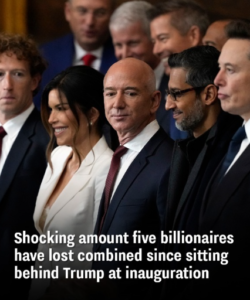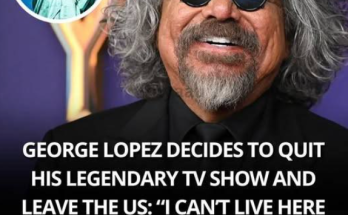Since President Trump’s inauguration, several prominent billionaires who were closely associated with him have experienced significant financial setbacks. Here’s an overview of five such individuals:
1. Elon Musk
Elon Musk, CEO of Tesla Inc., saw his net worth decline from $330 billion to $301 billion due to Tesla’s poor stock performance amidst a fluctuating market. This decline coincided with Musk’s close association with President Trump, who faced similar political challenges. Over a weekend, Trump and Musk’s camaraderie included a trip to Mar-a-Lago, but even Trump’s pledge to buy a Tesla didn’t stabilize the stock, which remained below its average. Tesla faced additional pressures from consumer boycotts and vandalism, with many unhappy about Musk’s actions. Trump defended Musk and committed to buying a Tesla, though the impact on the market was minimal. Musk had to juggle his government role with running his various businesses, which faced their own set of challenges, including a SpaceX incident and cyberattacks on X. The situation led to a media spectacle with Trump hosting a Tesla parade at the White House, symbolically trying to boost confidence yet failing to cause a significant market change.
2. Donald Trump
President Trump himself experienced financial losses. His own social media platform, Truth Social, saw a 44% drop in its stock value, impacting Trump’s shares by $1.8 billion. This decline is part of a broader trend where stocks associated with his presidency, referred to as ‘Trump trades’, have significantly declined. Other ‘MAGA Seven’ stocks also fell, such as Robinhood Markets Inc., Coinbase Global Inc., and MicroStrategy Inc. The general trend indicates a rocky start for stocks believed to benefit from Trump’s policies.
3. Imaad Zuberi
Imaad Zuberi, a Pakistani-American entrepreneur and venture capitalist, was a top fundraiser for President Barack Obama’s 2012 re-election campaign and in 2017, contributed $900,000 to Donald Trump’s presidential inaugural committee. In October 2019, Zuberi pleaded guilty to violating lobbying, campaign finance, and tax laws through campaign contributions to members of both parties. He was sentenced to twelve years in prison in February 2021.
4. Andrew Intrater
Andrew Intrater, an American capital investor, managed the investment firm Sparrow Capital, formerly known as Columbus Nova, which was the only American affiliate of the Russia-based firm Renova Group, owned by his cousin, Russian oligarch Victor Vekselberg. Intrater had close ties with Michael Cohen, Donald Trump’s long-time personal lawyer, who received a $1,000,000 consulting contract from Intrater’s firm Columbus Nova. Intrater also paid $250,000 to attend the inauguration ceremony of Donald Trump. Vekselberg’s assets were frozen due to the economic sanctions against Russia, impacting Intrater’s financial standing.
5. Jeff Bezos
Jeff Bezos, owner of The Washington Post, faced challenges as the newspaper’s editorial direction shifted under his ownership. Ruth Marcus, a long-time journalist at the Post, resigned due to these changes, citing a departure from the newspaper’s traditional commitment to a wide range of opinions. This internal conflict reflects broader challenges Bezos faced in balancing his business interests with journalistic independence.
These cases highlight the complex interplay between political affiliations and financial fortunes, illustrating that proximity to political power does not always equate to financial gain.
